WASHINGTON, DC
June 26, 2019
STRANGER: Aki Peritz
LOCATION: Agora, 1527 17th Street NW, Washington, DC
THEME: A lunchtime conversation with a former CIA analyst
“That person down the end of the bar could be watching you,” says Aki Peritz, cocking an eyebrow as we sit down for lunch at a restaurant in Washington, DC, a city populated with spies, agents, operatives and others from the United States and other countries He scans the room furtively. The former CIA analyst has a healthy paranoia honed from several years working for the agency when he had to keep his job a secret. “Look around the room, you don’t who’s who in here, or what they’re doing. You become paranoid about everything.”
The lesson in always being aware of your surroundings and careful about what you share is an evergreen piece of advice. And secrecy and caution were a necessity in his former position. But present day Aki is able to relax a little more, and can talk openly about his post-government career – from currently teaching the next generation of terrorism analysts, writing a book about the hunt for Osama Bin Laden, and starring on the CBS television show Hunted using his CIA expertise to track “fugitive” contestants.
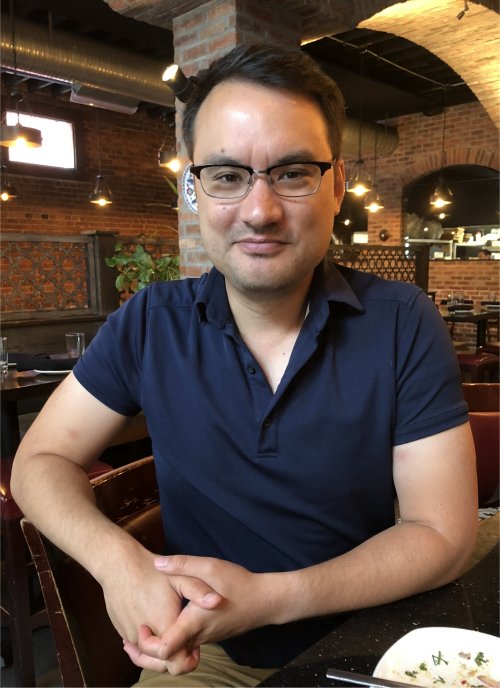
It’s a colorful post-agency career for a man who didn’t have a burning patriotic desire to join the CIA, but who’s now an expert on counterterrorism. Before we even order our food we’re chatting about airplane hijackings; not a typical conversational aperitif.
But terrorists’ obsession with aircraft is the topic of his next book, for which he’s still conducting interviews. So we chat for 10 minutes on that subject before touching the menus. Aki has an energetic but composed personality, a lean frame in a crease-free blue polo and slacks. He projects confidence and maintains eye contact through a pair of stylish black glasses, his youthful face topped with black hair parted like a sensible G-man.
Within seconds I know he’s great lunch company. He can tell an endless supply of stories about his past and present work that are fascinating and at times frightening. But he doesn’t speak in a sinister, doom-and-gloom tone. Instead, his engaging nature and quick, dry wit keep your attention, superior teaching tools compared to relying on fear.
That’s why I’m listening raptly as he tells me about his upcoming book. “It’s about why terrorists attack aviation and why they’ve done it for 50 years and they’ll continue to do it,” he tells me. “There’s something about airplanes and airports and air travel that terrifies people, even though it’s the safest way to travel – you’ve a better chance of getting killed driving on the road to the airport than flying. But there’s something about getting into a piece of aluminum and fiberglass piloted by strangers, you don’t know what’s happening.”
“Flying With Strangers,” I suggest as his book’s title.
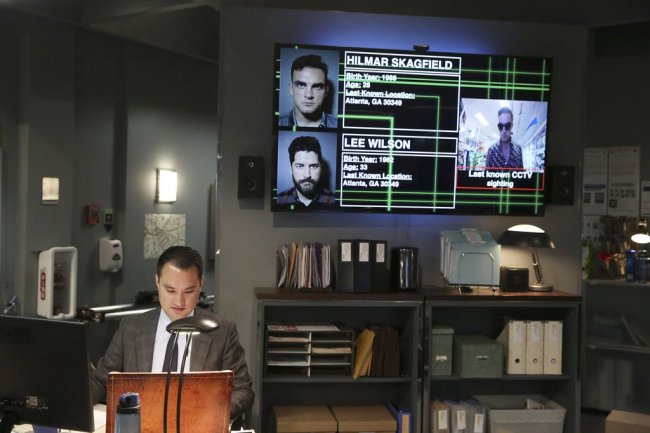
He nods and laughs, then jots it down.
Aki continues that the concept came in part from research and writing he did for an earlier book, “Find, Fix, Finish: Inside the Counterterrorism Campaigns that Killed Bin Laden and Devastated Al Qaeda,” a title that gives away the plot. One of the terrorist plots that he wrote about in the first book was the failed attempt by Al Qaeda, five years after 9/11, to blow up eight passenger airplanes across the Atlantic Ocean within the span of one hour. “If they would have pulled that off it would have devastated the civilian aviation industry,” he says. “Thousands of people would be dead, it would have shut down the Atlantic corridor, nobody would be flying, and Al Qaeda would be resurgent.”
The what-if scenario fascinated Aki. He says that such an enormous attack, coupled with the mid 2000s housing bubble burst and recession, would have upended the world and brought about global chaos. “It’s a super interesting story because it really would have changed everything, this country would have lost its mind.”
What’s his goal with the book? To inform people and guide against panic. “We cannot allow fear to dictate the way our systems are,” he tells me. “Air travel is a huge global phenomenon, it’s what connects us to the world. This fear could destroy our ability to behave in a civilized manner and you can’t let them do that.”
As I’ll learn during the hour-long lunch, the book is just one of many ways that Aki is keeping busy since leaving the agency. The difference being that nowadays he can talk (mostly) openly about it, albeit in carefully crafted sentences.
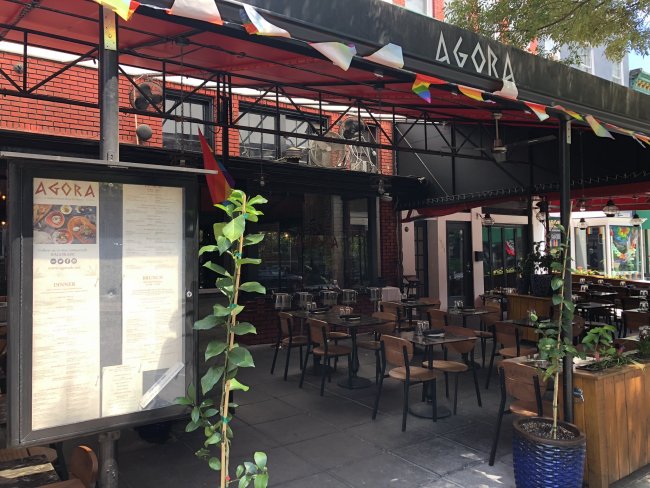
We’re dining at Agora, a Mediterranean place near Dupont Circle. It’s a humid weekday; too warm to sit on the venue’s patio. Instead we’re at the bar inside the spacious dining room lined with exposed red brick, brown wood partitions and night-black tables. It’s a dark color scheme yet the huge windows help create a light atmosphere.
Every weekday Agora offers a three-course lunch special of small plates, and it’s the perfect amount of food for us today.
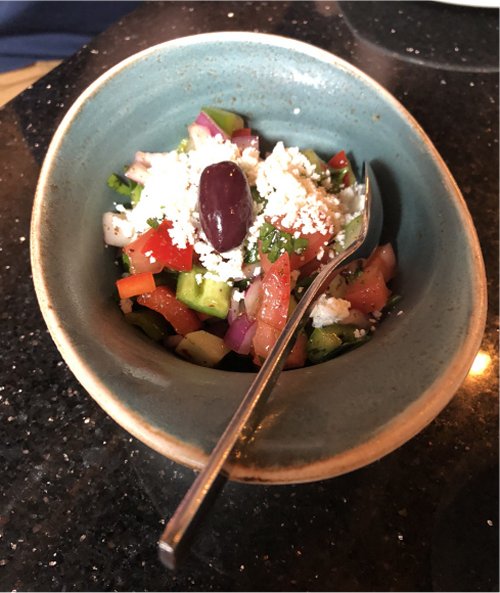
Spreads and salads are first. Aki’s eating the kasik, a fresh bowl of tomatoes, onions, parsley, cucumber, red and green peppers, olive oil, vinegar, crushed maras pepper, olives, and feta.
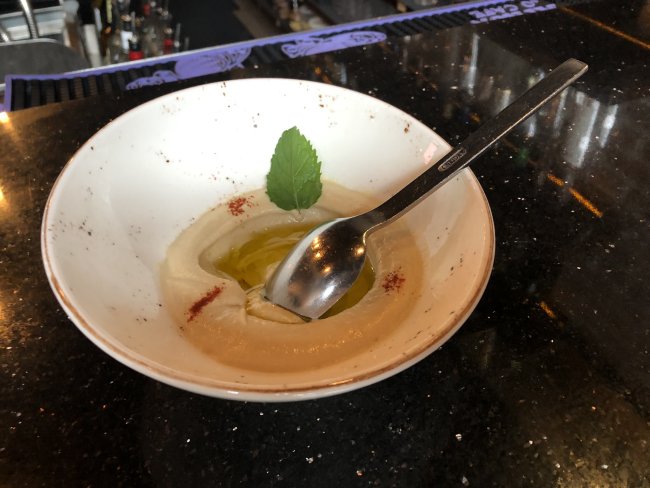
I’m having hummus, and Agora does a great version. Not too heavy, it tastes fresh and is great to scoop up with the restaurant’s perfect pita.
While we work on the first course, I ask Aki whether working for the CIA had always been a goal for him. He shakes his head.
Aki, who grew up in Pittsburgh, had always had an interest political science and pursued that topic at the University of Pennsylvania. After graduation in 2001 he traveled to Asia, not having any firm idea of what he wanted to do for a career. Upon his return he went to the University of Washington in Seattle for a Masters in International Relations.
In 2003, he moved to the nation’s capital. “It’s where things happen,” he says.
His first job was with the World Bank’s International Finance Corporation. Then he joined the unsuccessful presidential campaign of former Sen. John Kerry (D-MA) as part of the finance and fundraising team. Expecting a job with a Kerry administration, he had a security clearance application underway. Kerry didn’t defeat President George W. Bush, but Aki was able to use the clearance to assist with his next job; working for the CIA.
Applying for work at the agency is as simple as checking out its website. “Back in the old days your favorite professor would ask you into their office and shut the door and ask, ‘How’d you like to serve your country?’ It doesn’t really happen now, it might sometimes, but it’s not how the majority of the workforce comes through,” Aki explains.
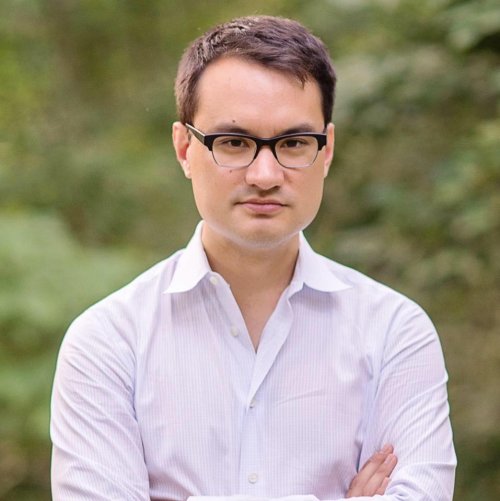
“I had no particular burning desire to work there but it seemed interesting,” he says. The CIA hired him as a counterterrorism analysist. But to most of his friends, first dates, or anyone else who asked he simply told them: “I work for the federal government.”
His day-to-day work was surprisingly routine. In the morning, he’d arrive at the office and review intelligence gathered since he was last at work, sifting through for anything that might be useful for the government as it tracks terrorism and bad actors worldwide. Some teams, such as those covering Iran, could be pulling all-night shifts, while others, such as the team tracking sub-Saharan Africa, would have light workloads.
He says his coworkers were dedicated professionals, though the idea of everyone being driven by what he jokingly calls “rah rah wave the flag stuff” only really happens when people first join the agency. “That only lasts for a little while and then you realize it’s a job and I’m motivated by all kinds of different things,” he says. “It’s hard to duplicate the rush of getting that job at the very beginning throughout your career.’
After five years, Aki’s then-girlfriend (they’re now married with children) got into business school in another city and he decided to move to be with her. “I had to choose, and I chose love,” he says. It was a wise choice as they’ve been together for more than 10 years.
At their wedding, there were two tables full of undercover government types. The seating was deliberate to avoid awkward “what do you do?” questions from strangers, the kind of query Aki successfully dodged during his time with the CIA.
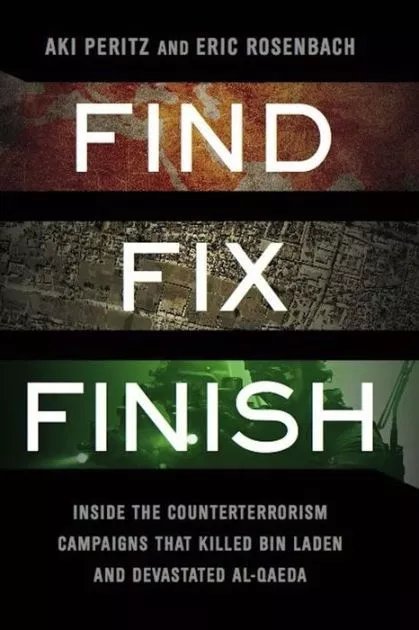
Once Aki and his wife married — he prefers to keep her and their childrens’ names off the record given the sensitivity of his ongoing area of expertise through his various lines of work — the couple returned to the DC area. “I really like this town, I think it’s fun, I like the people and I like the fact that things are dynamic here,” he says.
Armed with his experience at the agency, Aki secured gigs at a number of think tanks and other places including Third Way where he worked as senior national security advisor from 2011 to 2014. It was during that time that he co-authored “Find, Fix, Finish” who had served as deputy assistant secretary of defense under President Barack Obama but by then was also working at Third Way. The book was inspired by their chats about their prior work.
“We were talking about how we had all these stories from the last decade, why did it all happen,” he says, referring t0 9/11 and the rise of Osama Bin Laden and Al Qaeda. “So we put it all down on paper but we didn’t have an ending. I wrote a concluding paragraph that kind of petered out — and then Bin Laden gets killed in 2011 and now we have an ending.”
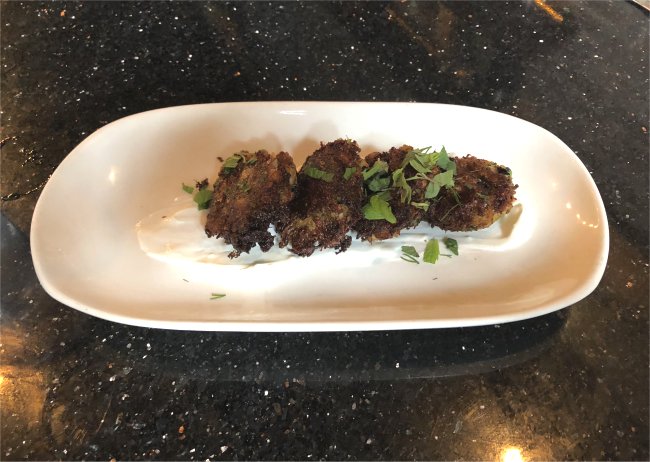
We pause for the second course: vegetable mezze. Aki chose the mucver, which is shredded zucchini, mint, dill, scallions, Manchego cheese, and lemon zest yogurt.
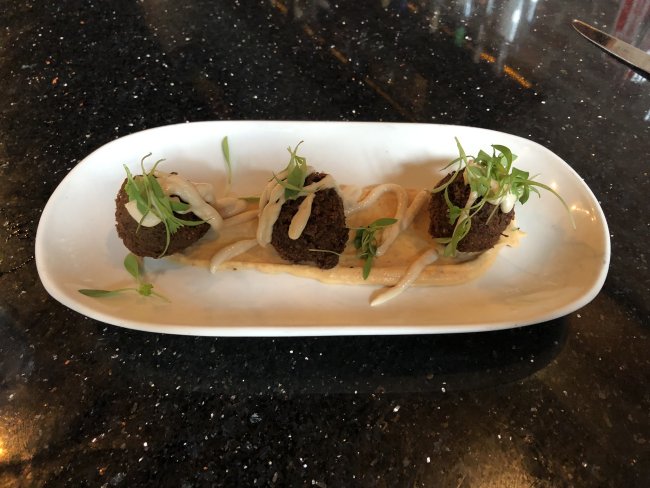
I’m having falafel — fried chickpea patties, spicy hummus, and a house-made sauce.
As we continue eating, Aki tells me his most recent work is leading the graduate capstone course “Intelligence and Analysis” at the American University’s School of International Studies. “So I get to mold the future, which is terrifying” he says with a look of mock horror.
Students have the chance to work with real world clients, such as government agencies or embassies, on major global issues. Aki can talk freely about it because all the information is “open source” and he’s not revealing any classified information.
For example, one year his students investigated which entities are investing in Crimea. “Traditionally Crimea has always been an economic basket case but somebody is making a lot of money there. So who’s doing it?” He taught his students how to uncover and parse information as they pursued leads including assessing what role the Russian government has in Crimea, how sanctions from overseas countries affected the situation, what gains anyone could make from investing in the country, and more.
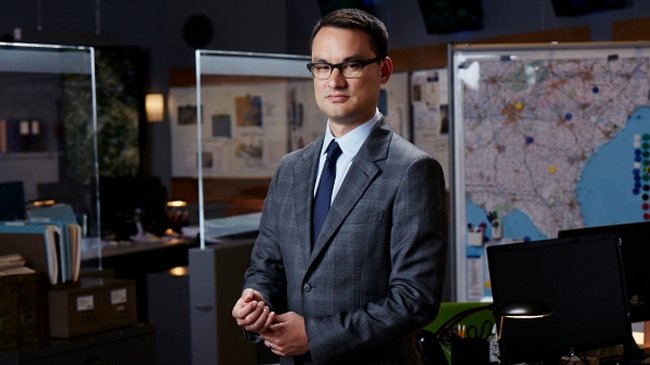
While the vast majority of Aki’s work, including regular appearances on CNN and other news networks, is serious he’s also dabbled in entertainment.
In 2017 he was part of the investigate team on CBS’ Hunted in which contestants became fugitives on the run with the goal of winning $250,000 if they managed to evade the investigators for 28 days. It was based on a popular British show of the same name which has had multiple seasons, although the U.S. version only lasted one year.
A production company found out about Aki and his experience, and offered him the chance to take part in the show, and he took it. Although it sounds like a fun experience, I wonder whether he had any worries about being taken less seriously by his peers due to being on the show. “I was concerned about reputational risk, but I watched the British version and the police came across as competent. The whole conceit doesn’t work if it’s a bunch of bumbling cops,” he says. “It was great, unfortunately we didn’t get renewed.”
As senior intelligence officer, his role on the show was to comb through data like social media to try locating the fugitives. For example, if two women were on the run, Aki would look at their Facebook pages for clues. If he found them often in a picture with a third person, he’d quiz that person for hints about where the duo might be. “Simple things like that,” he says. “Obviously it’s much more complicated.”
He was based in Glendale for about two months to film the show. “It was loads of fun, I saw it as a vacation — and it was the first time I’d really been away from my family for an extended period.”

When Aki finishes his sentence, our attentive waiter returns with our third and final course of meat mezze. Aki tucks into his selection of the adana, which is grilled minced-lamb kebap over pita bread, served with grilled tomato and sumac onions.
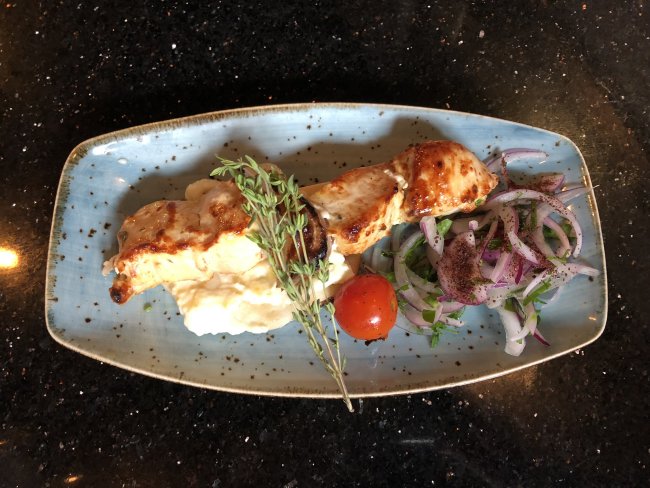
I’m eating, and enjoying, the shish tavuk: grilled chicken kebap and shallot served over garlic pita bread with grilled tomato and sumac onions. There’s not a wrong note with any of the food, and if my office were closer I’d return to Agora for lunch on a workday.
As lunch nears the end, Aki tells me that his daily routine in DC now includes playing with his family, working on his book, teaching and the occasional consulting work. “At some point I’m going to have to get a real job,” he says with a smile. “I’m writing the book because I want to write the book, but it’s not financially remunerative enough to raise a family on. So I’m doing this until I hit a point where I run out of a certain amount of money and move on to something else.”
He says counterterrorism, intelligence gathering, and the like still maintain his strong interest after more than 15 years focusing on the topics in and out of the government. “It’s constantly evolving which makes it interesting and exciting. The question is: What is intelligence? Intelligence is providing a decisionmaker the best possible information so that they can take an action. There’s a whole universe of information that you can give anybody but what is the one piece, or multiple pieces, of information that you can give the president or whoever the ability to make the best decision possible?”
Aki adds, “It’s not immoral, it’s amoral, morality has nothing to do with it. It’s about bringing truth, talking about truth. A lot of people think of the intelligence world as being about deception; it’s part of that, but the core point is to provide truth to people who have to make decisions to, otherwise they won’t be able to do their jobs.”
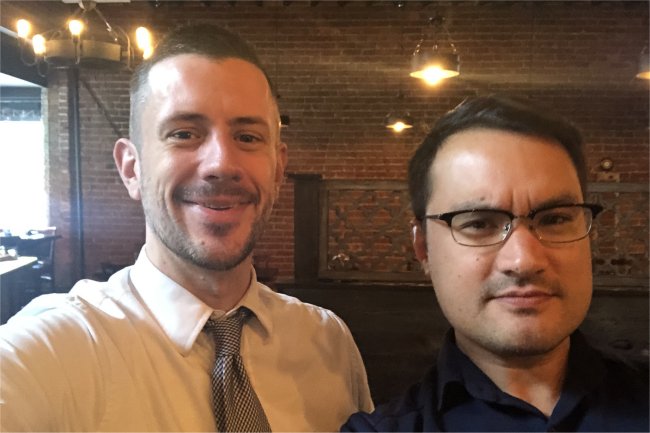
And what about the “ra ra save the country” mantra? Does he still get a sense of pride in covering the counterterrorism work of the intelligence agencies?
“Oh sure,” he says. “Now more than ever. We have a president who regularly bashes the intelligence community; the CIA and FBI specifically. And it’s annoying when your first customer trashes you all the time. But it comes in cycles, the agencies will survive. There have been worse things. I think it’s a more professional organization now than it ever has been. And so absent a major, major, major disaster or major war they’ll muddle through Trumpland.”
Aki occasionally uses his Twitter account to weigh in with commentary on Trump’s actions, and shakes his head when I ask whether he’s concerned that sharing his opinions online might affect how and whether people work with him on his projects. “I think it’s important as a U.S. citizen that we always have the ability to speak truth to power.”
And he’ll continue to do so through his extensive portfolio of work, always with one eye over his shoulder because he never knows which stranger might be watching.